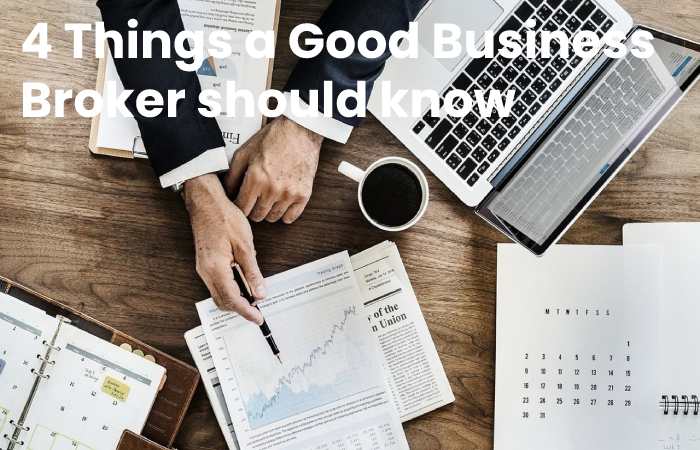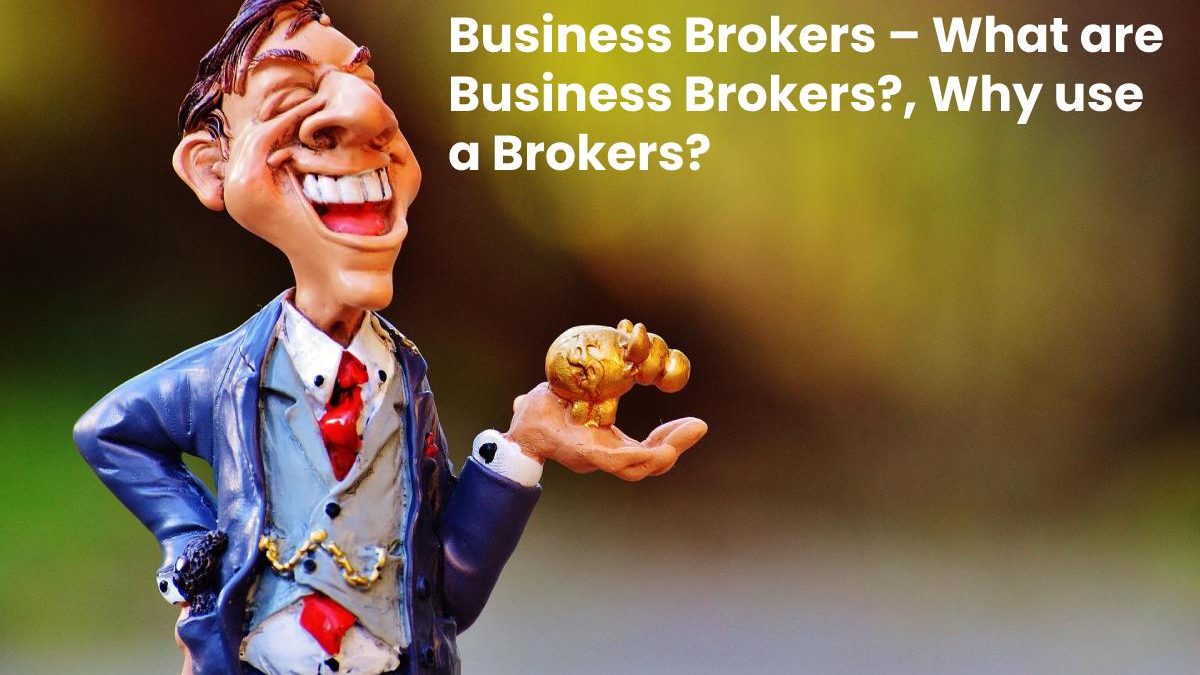Table of Contents
What are Business Brokers?
Business brokers are specialists who function as the point of communication through the sale of a small business. The broker mediates the deal by working with both the buyer and seller to progress the terms and situations that govern the completion of the sale. In many cases, business brokers do not reveal the identity of the seller or the company until well into the negotiations.
Business brokers generally have a background in finance or real estate and receive additional training from state or national associations in the home country. Training is normally oriented towards the achievement of two objectives. First, the courses help establish and define the standards that the broker is expected to meet in every business transaction. Secondly, the information contained in the course work ensures that the broker is revealed to all the data likely to be found on the required licensing written exams. After the initial training.
Everyone who is trained as a business broker can choose to operate as an independent broker or become part of a business brokerage franchise or brokerage firm. There are advantages in both situations. Independent business brokers can often choose clients, allowing them to specialize in selling dealings within a specific industry. Business brokers who choose to effort for a brokerage firm may deal with a wide range of clients, but generally have more resources at their disposal than freelancers
4 Things a Good Business Broker should know

Here we recommend four aspects to take into account if you want to be a good independent business broker .
1. Baby Boomers Retire
The generation born between 1946 and the first half of the 1960s, known as the babyproofers , is reaching the age of . retirement and thousands of 60-year-olds retire every day. Many of them own small and medium-sized businesses that they can put up for sale, but decide to simply close their doors instead.
As a business broker, you should know that, broadly speaking, baby boomers have three options when they reach retirement: inherit their business to a working family member, hire staff to replace them in the business, and become “absentee owners” or sell your business to an entrepreneur. Getting your client to opt for the third option will be your first objective.
2. Know and Dominate the Main Functions
Represent
Your client at all times. As soon as the company is put up for sale, you become its cover letter
Value
the company thoroughly and honestly – we’ll break this down later. This aspect can make the difference to succeed or fail in the attempt. The trust of your customers depends on your honesty. Analyze your market and your sector . Define whether the sector is in the phase of introduction , growth , maturity or decline . As well as knowing the specific weight of each direct competitor, it will be essential for you to develop your sales arguments or pitch .
Collaborate
with specialized appraisers . Have professional appraisers. Real estate, as well as machinery and kit is very useful. The more prestige your collaborators have, the more credibility your valuation will have. Work with a “latent” database of potential buyers and investors. You must constantly update your database and maintain regular communication with your contacts, so you will always remain on the radar as a serious and professional promoter.
It offers an
end-to-end legal service . You must lead the entire purchase-sale process, from preparing letters of intent to purchase by the investor to the final contract and verifying its full compliance. You do not have to be a lawyer, but you must collaborate with the one you trust.
3. Review the Financial Statements with the Owner
Selling a business implies knowing its assets and liabilities in detail. You should start by separating the business expenses and the owner’s costs because this will reflect the real value of the business. If the owner buys a luxury car on behalf of the company, investors will see this as an expense, not an investment. During the negotiation, these types of expenses will detract from the value of the transaction.
4. Annual Appraisals increase the Value of the Business
Potential investors in a business that is for sale positively value periodic professional valuations. The longer a company has been evaluated and valued, the more security the investor has, therefore, their risk is lower and, in turn, the value of the company you represent increases. Therefore, valuing your clients’ companies once a year facilitates the sales process when the time comes. In the same way, listing on the – The Stock Exchange requires professional audits and specific transparency criteria, such as the publication of quarterly financial statements.
Why use a Business Brokers?
Any business holder who has sold a business on their own knows that it is a long, tedious and stressful process. It is time consuming and distracts from the daily operation of the business. When your focus must be on maintaining or increasing the value of your business, the selling process can become a waste of energy.
An experienced business broker can help guide you through the complicated process of selling your business. There are many areas where the experienced business broker pays off and they are as follows:
Confidentiality
If you as the owner attempt to sell your own business, this process exposes your identity. Employees, customers, suppliers and bankers get nervous and competitors are looking to make a killing, because they may believe that you are in crisis and that is why you sell. A business agent protects your company identity. A broker will find buyers through a blind profile – a document that describes the company without revealing their identity.
Business Continuity
Selling a business is time consuming for an owner. By taking on the added burden of selling the business, essential functions will receive less attention and possibly harm the business. The owner can focus on his approach to running the business while his agent is working on the sale.
Reach Potential Purchasers
Business brokers have the tools and funds to spread the major possible base of buyers. Brokers use their own contacts, internet portals dedicated to buying and selling, register their services in different online directories. To gain visibility and generate countless opportunities and contacts from potential buyers.
Advertising
A broker can help present your business in the best bright to maximize the sale value. Everyone has an understanding of the key standards buyers are looking for and can help identify changes that may lead to a better selling price.
Valuation of your Business
Putting a value on a company is much more difficult and complex than appraising a line. Business brokers have access to databases of business transactions that can be used as guidelines or benchmarks. But the best way for business owners to feel truly comfortable and convinced that the broker got the best deal is to have multiple financially viable parties.
Close a Deal
Since the sole function of the business broker is to sell the business. There is a much greater chance that the deal will close in fewer time. The faster the sale, the lower the hazard of employee problems, customer churn, and predatory competition.
Conclusion
A professional who specializes in buying and selling companies. Business brokers help individuals and businesses who want to buy or sell a business. A business broker may specialize in selling companies in certain industries, such as restaurants, retail, manufacturing, or hospitality. A business broker might also specialize in selling businesses of a certain size or with certain unique characteristics.

